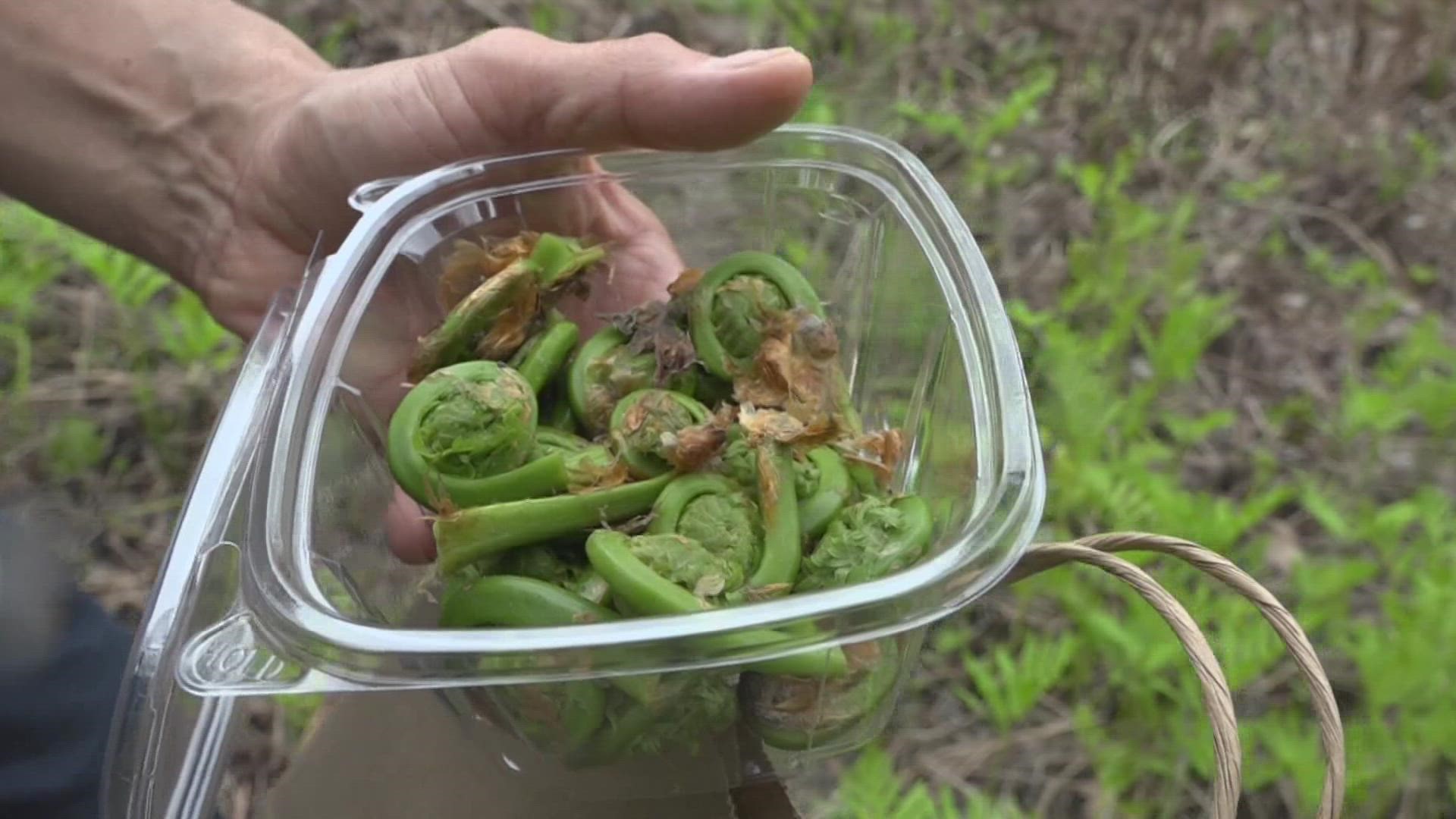MAINE, Maine — Fiddlehead season in Maine is in full swing, but there are growing concerns whether the foraging delicacy harvested on or near land flagged for contamination from PFAS chemicals are safe to eat.
Susan Lettre wrote us and asked: "With all the news about PFAS in our farms and waters here in Maine, is it safe to eat fiddleheads? Are they contaminated with PFAS?"
The fiddlehead ferns we eat in Maine are from the ostrich fern, and the harvest season lasts until mid-June.
While fiddleheads can be purchased in grocery stores and farmers' markets, many people forage the edible plants in damp places with freshwater streams or rivers nearby.
"There is no conclusive national or state data on health risks associated with consuming ferns harvested from areas where PFAS has been detected in soil or groundwater," Maine Center for Disease Control and Prevention spokesperson Robert Long told NEWS CENTER Maine. "Soil PFAS levels and information on which specific PFAS are present would be required for an assessment. Individuals may wish to consult the Maine Department of Environmental Protection website if they wish to avoid harvesting fiddleheads in areas where PFAS has been found."
The website identifies sites where PFAS levels have been discovered in the soil and drinking water, as part of an ongoing investigation into contamination from PFAS chemicals. The source of contamination is municipal sludge, which was used as free fertilizer on Maine farms going back decades.
Exposure to industrial compounds has been linked in federal health studies to serious health problems including diminished immune response to vaccines, thyroid problems, and organ-related cancers.

